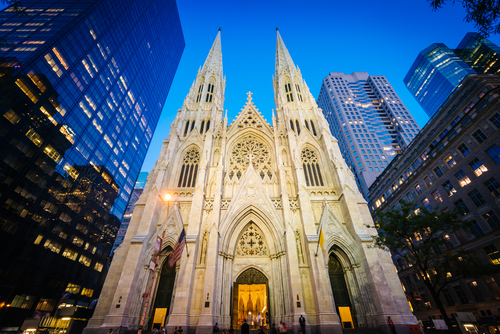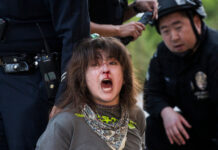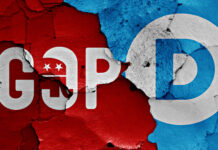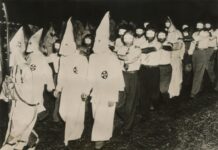
In an unprecedented act that has sparked widespread condemnation and debate, pro-Palestine protesters affiliated with Extinction Rebellion NYC's Palestinian Solidarity group brazenly disrupted the solemn Easter Vigil service at St. Patrick's Cathedral in New York on March 31, 2024. The incident, occurring during one of Christianity's holiest celebrations, has ignited discussions on the sanctity of religious observances and the boundaries of political activism.
The demonstrators, who had earlier congregated in Times Square for a pro-Palestine rally, infiltrated the iconic cathedral during the Easter Vigil's second reading. Their chants of "Free, free Palestine" abruptly shattered the reflective atmosphere, leaving thousands of worshippers in shock.
At St Patricks Cathedral in NY on Easter Sunday, 3 activists entered & started shouting "free Palestine, & held up a banner saying "silence=death".
Matthew Menzies, 31, John Rozendaal, 63, & Gregory Schwedock, 35, were arrested & charged with disruption of religious service. pic.twitter.com/1c5pM7csiR
— David Atherton (@DaveAtherton20) April 1, 2024
This deliberate intrusion into a sacred event not only disrespected the congregants' right to worship but also highlighted a growing trend of activism encroaching upon religious spaces.
Eyewitness accounts describe a scene of confusion and dismay as the small group of protesters vocally disrupted the service.
Three climate wacko Hamas sympathizers interrupt Easter mass at St. Patricks cathedral in NYC…
With a banner reading “silence=death” shouting “free Palestine” as they left!!
(Happy Easter) (Resurrection Day) pic.twitter.com/OlgWsTLnGO
— Millennial Conservative ™️ (@Milennial_con) March 31, 2024
Security personnel swiftly intervened, escorting the individuals out of the cathedral, yet the brief episode left a lasting impact on those present. The protesters were seen carrying a flag adorned with an olive tree and the message "SILENCE = DEATH," a stark reminder of the complex geopolitical issues at play.
The Archdiocese of New York has yet to issue an official statement regarding the incident, reflecting perhaps a measured approach to addressing what is undoubtedly a sensitive matter. The Easter Vigil, traditionally a time for reflection on the resurrection of Jesus Christ and the foundational truths of the Christian faith, was thus marred by an act that many perceive as a blatant disregard for religious sanctity.
Critics of the protest argue that such actions do more harm than good, alienating potential allies and disrespecting the fundamental rights of individuals to practice their faith in peace. Social media reactions have been swift and divided, with some pointing out the hypocrisy of disrupting a Christian service while questioning whether similar protests would ever occur in other religious contexts.
This incident at St. Patrick's Cathedral serves as a stark reminder of the challenges facing society today, where the lines between activism, respect for others, and the sanctity of worship are increasingly blurred. It raises important questions about the appropriate venues for political protests and the respect owed to religious observances, especially during significant holy days.
As the dust settles on this Easter disruption, it is imperative for both activists and religious communities to engage in dialogue and seek understanding. While advocacy for peace and justice remains crucial, so too does the preservation of respect for all faiths and their sacred practices. The events of March 31, 2024, at St. Patrick's Cathedral will undoubtedly serve as a catalyst for much-needed conversations on these pivotal issues.











